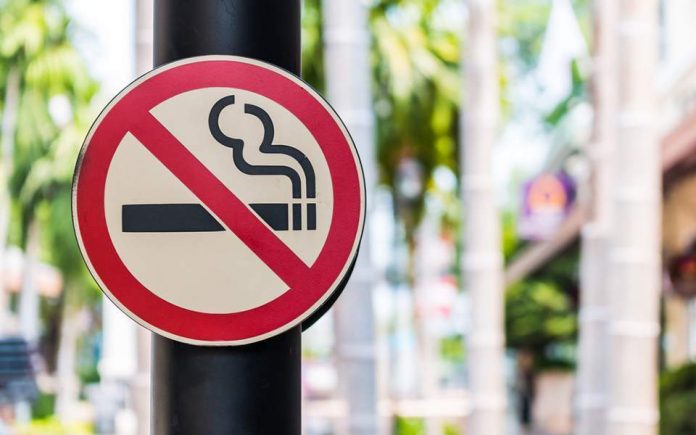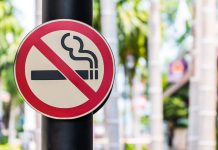This article is written by Jagriti Sanghi, an Advocate practising in the Courts of Telangana. This article deals with the potential benefits of New Zealand’s smoke ban and compares the law with other countries including India.
Table of Contents
Introduction
Cigarettes are one of the leading causes of preventable deaths around the world. In the United States alone, cigarette smoking causes more than 480,000 deaths each year. Tobacco smoke introduces not only nicotine but also over 5,000 chemicals into one’s lungs, blood, and organs, including several carcinogens (cancer-causing compounds). Smoking, in addition to the established cancer risks, causes a slew of other chronic (long-term) health issues that necessitate continuing attention. In a courageous attempt to prevent cigarette addiction, the New Zealand government has introduced a law to ban cigarette sales to younger generations throughout their lifetime.
The need for tobacco control in New Zealand
Tobacco smoking has been identified as one of the leading causes of preventable deaths in New Zealand with almost 5,000 people dying each year. Although smoking rates have been steadily declining for years, with only approximately 11% of persons smoking presently and 9% smoking every day, the Government believes that without a push, it would take decades for the country’s smoking percentage to reach below 5%. Moreover, Indigenous Maori continue to have a considerably higher daily rate, at 22 per cent. A separate committee would have to be established underneath the Government’s initiative to help prevent smoking in the Maori community. Each year, more than 600 Maori die prematurely as a result of smoking-related ailments, and this loss, along with the addiction that preceded it, erodes economic, social, and cultural welfare, as well as stifles Maori development ambitions and chances.
Initial stages of reform
Smoking rules were initially introduced by the New Zealand government in 2011, following a recommendation from the New Zealand Parliament’s Maori Affairs Select Committee. Since then, the smoke-free movement has urged successive governments to adopt a master plan for achieving the goal of a Smoke-free New Zealand by 2025 which would have a smoking prevalence of less than 5%. The New Zealand Government released a discussion document with a potential action plan for Smoke-free 2025 in April 2021. The document listed two comprehensive strategies that would help in building a smoke-free population. To begin, it proposes drastically limiting the retail availability of smoked tobacco products and eventually eliminating sales. Second, it suggests that essentially all nicotine be removed from cigarettes and tobacco, making them far less addictive. Consultations for the document were closed in May 2021 and the New Zealand government announced that a new plan would be introduced in the coming year which would limit the sale of cigarettes in the country.
Previously, as part of the Smoke-free 2025 plan, various tax measures were introduced to discourage people from purchasing cigarettes. In New Zealand, a pack costs around NZD 30, or just over $20, second only to neighbouring Australia, where wages are significantly higher. According to New Zealand’s Associate Health Minister Dr Ayesha Verrall, the tax regime was ‘punishing those people who are addicted to cigarettes even more. She also believed that “the tax measures tend to place a higher burden on lower-income people, who are more likely to smoke.”
New Zealand’s proposed tobacco control law
As per the proposed law, people aged under 14 at the time of the law will never be able to legally purchase tobacco throughout their lifetime. From the time it takes effect, the Act will effectively raise the smoking age every year in perpetuity. New Zealand’s legal smoking age is 18, which means that anyone born after December 31, 2004, will never be able to smoke tobacco products legally throughout their lives if the law takes effect on January 1, 2023.
The legislation will also include steps to discourage the sale and consumption of cigarettes by elderly New Zealanders, which will be phased in overtime to allow the community to adapt. Tobacco products are now sold by over 8,000 stores in New Zealand, but under new restrictions, that number will be reduced to just 500. Only low-nicotine cigarettes will be offered to people who aren’t restricted under the legislation by 2025. This includes intentions to limit design measures aimed at increasing the attractiveness and addictiveness of smoked tobacco products, such as requiring only smoked tobacco products with very low nicotine levels to be manufactured, imported, distributed, and sold by authorised merchants. The laws aim to make cigarettes no longer addictive and reduce the number of young people who begin smoking. Application of the new laws would make New Zealand’s tobacco industry the second most regulated one, right behind Bhutan which has enforced a complete ban on cigarettes.
The proposed legal amendments
As per the Smoke-free Aotearoa 2025 Action Plan document submitted by the Office of the Associate Minister of Health, the document mainly aims to amend the Smoke-free Environments and Regulated Products Act 1990 to further restrict access and availability of smoked tobacco products and reduce their appeal and addictiveness. :
- According to Section 55 of the Smokefree Environments and Regulated Products Act 1990, It is currently illegal for a manufacturer or importer to offer for sale or export any smoked tobacco product containing “harmful constituents” exceeding any limits prescribed by regulations, as determined by any tests so prescribed. However, because constituents of smoked tobacco products that aren’t “harmful” in and of themselves can contribute to the item’s attraction and addictiveness. It is proposed that the legislation mandates that only constituent-compliant smoked tobacco products be manufactured, imported, or offered for sale or supply and that any smoked tobacco product containing constituents exceeding any limits prescribed by, or any features or constituents prohibited by the Act or regulations, becomes illegal.
- Under Sections 40 and 41 of the Smokefree Environments and Regulated Products Act 1990, it is currently an offence to sell, deliver or supply regulated products to people younger than 18 years old. The committee proposed a system that provides a cut-off date of birth, whereby it would be unlawful to sell smoked tobacco products to people born after a particular date.
- Although the major parts of the plan may be passed through amendments, some parts would require practical implementations by various organizations and committees.
Potential benefits of the new changes
According to analysis, the action plan’s initiatives are likely to fulfil the Smoke-free objective for Maori males and non-Maori males and females in 2025, as well as come close to meeting the goal for Maori females (5.6 per cent in 2025 and 3.3 per cent in 2026). This contrasts with a business-as-usual approach, which would see Maori achieve a smoking prevalence of 5% by 2061. These recommendations are expected to result in a gain of 558,000 Health Adjusted Life Years (HALYs), resulting in savings of $5.25 billion in future health spending and a further $5.88 billion in enhanced productivity (income to New Zealanders). Smoking-related fatalities account for a large fraction of the life expectancy discrepancy between Maori men and Maori women and non-Maori. To close the life expectancy discrepancy between Maori and non-Maori, the smoke-free target must be met. Furthermore, the overall volume of smoked tobacco marketed in New Zealand is steadily falling and will drop quickly once low-nicotine tobacco restrictions are implemented.
Criticism of the proposed change
Concerns have been raised regarding the economic impact of the proposed changes regarding the sale of tobacco products. The Government has specified that it would not compensate for the losses caused to persons due to the change in the law, which has caused further discontent. According to Mr Sunny Kaushal, the chairman of the Dairy and Business Owners Group which acts as the representative body for more than 5000 corner stores, “We all want a smoke-free New Zealand,” he said. “But this is going to hugely impact small businesses. It should not be done so it is destroying dairies, lives and families in the process. It’s not the way.” He noted that the tobacco tax rises had already created a black market that gangs were exploiting, and the problem was only going to become worse. He claimed that smoking was already in decline in New Zealand and would eventually fade out on its own.
Some parties have criticised the plan, claiming that lowering nicotine levels in goods will disproportionately affect low-income individuals, who will have to buy more cigarettes and smoke more to get the same dose. A growing illegal market for tobacco has also been cited as a source of concern. “Evidence shows that the volume of tobacco goods being smuggled into New Zealand has increased dramatically in recent years, and organised criminal gangs are involved in large-scale smuggling“, the Government said in its initial suggestions. There have been apprehensions among the sellers stating that the changes were being led by academicians and that the concerned stakeholders were not consulted.
Tobacco control in other countries
Internationally, Bhutan has the strongest rules against smoking tobacco. Bhutan’s Tobacco Control Act, 2010 bans the sale, cultivation, distribution and promotion of tobacco products but does allow limited imports for personal consumption. Individuals may import up to either 800 cigarettes, 1,200 bidis, 150 cigars or 750 grams of other tobacco products each month after paying the 100 per cent sales tax on Indian products plus the 100 per cent customs duty for third-country imports. However, this ban was temporarily lifted during the surge of COVID-19 cases to curb the infections that smugglers can bring along with tobacco across the porous southern border with India.
In a similar move, Costa Rica in 2012 passed strict smoking legislation wherein it has also been reporting high compliant rates to the ban. The law in the country prohibits lighting up in taxis, buses, trainers, public buildings, bars, casinos and workplaces. Smoking is also banned from all enclosed public-access buildings, and no separate “smoking areas” are allowed. It has acceded to the World Health Organization’s urge to reach tobacco-control goals in most countries.
Other countries that have taken a strong step towards tobacco control include Malaysia, Uruguay, Colombia etc. There have been several steps for tobacco control in India also. In many public places and workplaces, including medical, academic, and government buildings, as well as on public transportation, smoking is fully prohibited. Indian law which requires 85% per cent of the tobacco product cover to be warnings, the Court held in Health for Millions Trust v. Union of India (2018).
Conclusion
The proposed changes in New Zealand will still need to pass through the legislative process, but would ideally not face any challenges. As per the current scheme the legislative amendments would be introduced in 2022 and the age limit restrictions would be introduced in 2023. As envisioned by the New Zealand government, one can only hope that the law becomes a motivation for all other countries to adopt strong health laws that would be beneficial for their people.
References
- https://blogs.bmj.com/tc/2021/05/05/new-zealand-government-proposes-world-leading-action-plan-to-achieve-smokefree-2025-goal/
- https://www.parliament.nz/resource/en-NZ/49DBSCH_SCR4900_1/2fc4d36b0fbdfed73f3b4694e084a5935cf967bb
- https://www.npr.org/2021/12/09/1062610621/new-zealands-plan-to-end-smoking-a-lifetime-ban-for-youth
- https://www.nytimes.com/2021/12/09/world/asia/new-zealand-smoking-ban.html
- https://abcnews.go.com/Health/wireStory/zealands-plan-end-smoking-lifetime-ban-youth-81645578
- https://globalnews.ca/news/271458/5-countries-with-strict-smoking-bans/
- https://www.huffpost.com/entry/new-zealand-cigarette-ban-for-life-2004_n_61b19774e4b089ee1c2f6166
- https://www.stuff.co.nz/national/politics/127230008/government-to-ban-tobacco-sales-to-young-people-for-their-lifetime-in-firstever-smokefree-generation
- https://www.health.govt.nz/system/files/documents/information-release/cabinet_paper_smokefree_action_plan_2025.pdf
- https://www.tobaccocontrollaws.org/legislation/country/india/summary#:~:text=The%20law%20prohibits%20the%20sale,other%20forms%20of%20smokeless%20tobacco.&text=The%20sale%20of%20tobacco%20products%20is%20prohibited,under%20the%20age%20of%2018.
- https://www.bbc.com/news/world-asia-59589775
Students of Lawsikho courses regularly produce writing assignments and work on practical exercises as a part of their coursework and develop themselves in real-life practical skills.
LawSikho has created a telegram group for exchanging legal knowledge, referrals, and various opportunities. You can click on this link and join:
Follow us on Instagram and subscribe to our YouTube channel for more amazing legal content.
 Serato DJ Crack 2025Serato DJ PRO Crack
Serato DJ Crack 2025Serato DJ PRO Crack










 Allow notifications
Allow notifications


